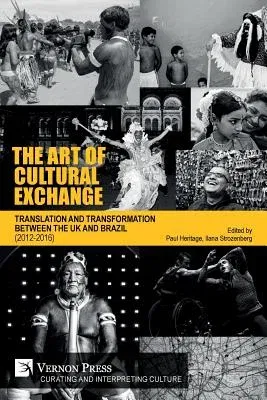Can cultural exchange be understood as a mutual act of translation? Or
are elements of a country's cultural identity inevitably lost in the act
of exchange? Brazil and Great Britain, although unlikely collaborators,
have shared an artistic dialogue that can be traced back some 500 years.
This publication, arising from the namesake research project funded by
the United Kingdom's Arts and Humanities Research Council, seeks to
understand and raise awareness of the present practices of cultural
exchange between Brazil and Great Britain in relation to their
historical legacy. Presenting five case studies and eight position
papers, this research-based project investigates how artists interpret,
transmit and circulate ideas, ideologies and forms of knowledge with
specific reference to the production of new 'translations' produced from
and, where possible, between peripheral territories.
Written in accessible language, the case studies describe the experience
of artists, managers and cultural leaders dealing with important
challenges in the creative sector regarding the translation of creative
and learning arts methodologies. Projects investigated are at the
forefront of social arts collaborative practice, representing
internationally influential initiatives that have had a demonstrable
impact not only in urban centres and peripheries but also in isolated
areas of central Brazil and the north of England. The position papers
commissioned by the research from Brazilian and British academics and
cultural leaders provide a remarkable variety of social, political,
anthropological, historic and artistic perspectives of cultural exchange
projects offering valuable experiences for those working in research,
policy and for creative practitioners.


